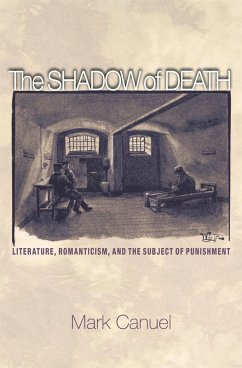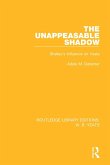The Shadow of Death is a timely and ambitious reassessment of English Romantic literature and the unique role it played in one of the great liberal political causes of the modern age. Mark Canuel argues that Romantic writers in Great Britain led one of the earliest assaults on the death penalty and were instrumental in bringing about penal-law reforms. He demonstrates how writers like Percy Bysshe Shelley, Lord Byron, William Wordsworth, and Jane Austen defined the fundamental contradictions that continue to inform today's debates about capital punishment.
Celebrated reformers like Sir Samuel Romilly and William Ewart campaigned against the widespread use of death to punish crimes ranging from murder to petty theft, but they were most influential for initiating a system of penalties built upon conflicting motivations and justifications. Canuel examines the ways Romantic poets and novelists magnified these tensions while treating them as uniquely aesthetic opportunities, seized upon contending rationales of punishment to express imaginative power, and revealed how the imagination fueled the new penal code's disturbing vitality. Death-penalty reform, Canuel argues, in fact emerged from a new way of thinking about punishment as a negotiation among rationales rather than a seamless whole, with leniency and severity constantly at odds. He concludes by exploring how Romantic penal reform continues to influence contemporary views about the justice--and injustice--of legal sanctions.
Celebrated reformers like Sir Samuel Romilly and William Ewart campaigned against the widespread use of death to punish crimes ranging from murder to petty theft, but they were most influential for initiating a system of penalties built upon conflicting motivations and justifications. Canuel examines the ways Romantic poets and novelists magnified these tensions while treating them as uniquely aesthetic opportunities, seized upon contending rationales of punishment to express imaginative power, and revealed how the imagination fueled the new penal code's disturbing vitality. Death-penalty reform, Canuel argues, in fact emerged from a new way of thinking about punishment as a negotiation among rationales rather than a seamless whole, with leniency and severity constantly at odds. He concludes by exploring how Romantic penal reform continues to influence contemporary views about the justice--and injustice--of legal sanctions.
Dieser Download kann aus rechtlichen Gründen nur mit Rechnungsadresse in A, D ausgeliefert werden.









